Search Results
Showing results 41 to 60 of 136
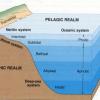
Introduction to Ocean Zones
Source Institutions
In this activity, learners will create a diagram of the ocean zones and determine what organisms live in each zone.
Forwards and Backwards: pH and Indicators
Source Institutions
Visitors prepare six solutions combining vinegar and ammonia that range incrementally from acid (all vinegar) to base (all ammonia).
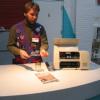
Inkjet Printer
Source Institutions
In this activity, learners investigate how inkjet printers produce tiny, precise drops of ink.
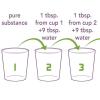
Sniffing for a Billionth
Source Institutions
This is an activity (located on page 4 of the PDF under What's Nano? Activity) about size and scale.
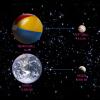
Sizing Up the Universe
Source Institutions
In this online interactive challenge, learners choose items to represent the Earth or solar system, then determine other items to represent the Moon, or Milky Way based on their relative size.
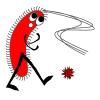
Comparing Sizes of Microorganisms
Source Institutions
In this activity related to microbes, learners create scale models of microorganisms and compare relative sizes of common bacteria, viruses, fungi and protozoa using metric measures: meters, centimete
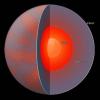
Heavyweight Champion: Jupiter
Source Institutions
In this activity, learners confront their perceptions of gravity in the solar system.

Dunking the Planets
Source Institutions
In this demonstration, learners compare the relative sizes and masses of scale models of the planets as represented by fruits and other foods.

Pea Brain!: Explorations in Estimation
Source Institutions
In this activity, learners use two different techniques to estimate how many little things fit into one bigger thing.
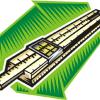
Slide Rules
Source Institutions
Learners make their own simple slide rules out of paper and learn how they work.

Construction and Destruction
Source Institutions
In this three/four-day lesson, learners calculate perimeters and areas and draw the castle plan to scale.
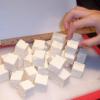
Exploring at the Nanoscale
Source Institutions
This lesson focuses on how nanotechnology has impacted our society and how engineers have learned to explore the world at the nanoscale.
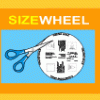
Size Wheel
Source Institutions
In this fun sticker activity, learners will create a size wheel with images of objects of different size, from macroscopic scale (like an ant) to nanoscale (like DNA).
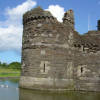
Castle Basics
Source Institutions
In this four-day lesson, learners identify three-dimensional forms in castle design, research different parts of the castle with a focus on their uses, and design and enlarge a banner for the great ha

Backyard Graphing
Source Institutions
In this math activity, learners will create a scale diagram of their backyard or other outdoor area on graph paper.

Weight in Space
Source Institutions
In this activity, learners are challenged to calculate their own weight on various planets using a scale and calculator. Older learners may be challenged to do so without using calculators.
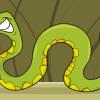
Animals are Amazing!
Source Institutions
In this activity, learners use measurement concepts to make models of what their body parts might look like if they were a snake or a chameleon.

Exploring Size: Measure Yourself
Source Institutions
In this activity, learners mark their height on a height chart and discover how tall they are in nanometers.

Gravity Fail
Source Institutions
In this activity, learners try pouring water out of a regular cup and a miniature cup. It’s harder than it sounds! Learners discover that different forces dominate at different size scales.
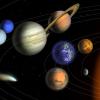
Solar System Bead Distance
Source Institutions
In this astronomy activity, learners create a model of the solar system using beads and string.
